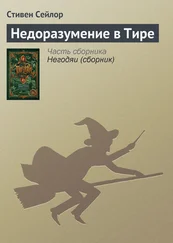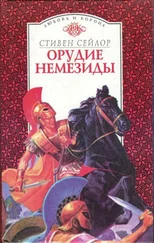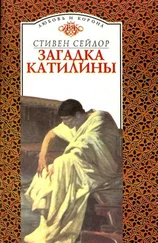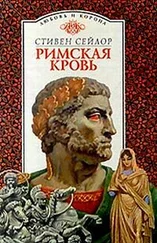Стивен Сейлор - The Throne of Caesar
Здесь есть возможность читать онлайн «Стивен Сейлор - The Throne of Caesar» весь текст электронной книги совершенно бесплатно (целиком полную версию без сокращений). В некоторых случаях можно слушать аудио, скачать через торрент в формате fb2 и присутствует краткое содержание. Год выпуска: 2018, Издательство: St. Martin's Press, Жанр: Исторический детектив, на английском языке. Описание произведения, (предисловие) а так же отзывы посетителей доступны на портале библиотеки ЛибКат.
- Название:The Throne of Caesar
- Автор:
- Издательство:St. Martin's Press
- Жанр:
- Год:2018
- ISBN:нет данных
- Рейтинг книги:5 / 5. Голосов: 1
-
Избранное:Добавить в избранное
- Отзывы:
-
Ваша оценка:
- 100
- 1
- 2
- 3
- 4
- 5
The Throne of Caesar: краткое содержание, описание и аннотация
Предлагаем к чтению аннотацию, описание, краткое содержание или предисловие (зависит от того, что написал сам автор книги «The Throne of Caesar»). Если вы не нашли необходимую информацию о книге — напишите в комментариях, мы постараемся отыскать её.
The Throne of Caesar — читать онлайн бесплатно полную книгу (весь текст) целиком
Ниже представлен текст книги, разбитый по страницам. Система сохранения места последней прочитанной страницы, позволяет с удобством читать онлайн бесплатно книгу «The Throne of Caesar», без необходимости каждый раз заново искать на чём Вы остановились. Поставьте закладку, и сможете в любой момент перейти на страницу, на которой закончили чтение.
Интервал:
Закладка:
“Someday I will, Gordianus. I promise.” Cinna appeared to savor the moment. At last, I had not only read his poem, I had succumbed to it. In unison, the three of us each took a long, deep breath and shivered slightly, as if waking from a dream.
“So, Gordianus, what business has kept you so occupied the last few days?”
I shook my head. “Matters so trivial I hate to mention them. Most aggravating of all is my quest for a senatorial toga. Everyone says I must go to Mamercus, but when I do, he has nothing to offer me. Now it’s only a matter of hours until the Ides. I suppose I shall spend the rest of the day—”
“But why didn’t you come to me?” asked Cinna with a laugh. “I’ll be glad to loan you a toga. I think we’re not too different in size. The garment will probably need no alterations at all.”
“But Cinna, I could hardly impose—”
“Mind you, it’s my summer toga you’ll be getting. My winter toga, which is thicker and rather warmer, I shall be wearing myself, in case of inclement weather, always a possibility in Martius. And that big assembly chamber at Pompey’s Theater can be awfully drafty. But let me think: Where is my summer toga? Sappho will know. Since the death of my wife, she’s the woman of the house. Polyxo!”
He called to a slave who happened to be passing in the garden, a stooped woman with jet-black skin and snow-white hair. The woman crossed the garden, walking a bit stiffly, and stepped into the room.
“Master?” she said.
“Go and find Sappho. Ask her to locate my summer toga. I intend to loan it to this brand-new senator.”
“Yes, Master.” The woman turned and began to leave the room.
“Getting a bit slow, this one,” said Cinna, suddenly speaking Greek. “Been with us a very long time, since Sappho was a baby. Remind me to tell you the story behind her name. Oh, don’t worry, she doesn’t know I’m talking about her. She doesn’t know a word of Greek.”
“She’s as black as ebony,” said Davus, enunciating the obvious in Latin, now that Polyxo had disappeared from sight.
“From Nubia, where everyone is black skinned,” said Cinna, also r eturning to Latin. “Nubia lies closer to the sun’s course year-round, so it’s always summer there. Just as you and I grow darker in the summer, the Nubians have grown permanently dark, as dark as Polyxo. As I said, she doesn’t know a word of Greek. Can’t read or write, either, unusual for a slave in this household. My late wife used to converse in Greek with no fear of being overheard, even if Polyxo was right there in the room.”
“Good luck, keeping secrets from a slave,” I said.
“How true! Yet slaves always manage to keep secrets from their masters. A subject for a small poem, perhaps. Do you know what? Along with the toga, I shall give you something else today—a copy of the Zmyrna, with every line intact.”
“You’re too generous, Cinna.”
“Nonsense. I always keep a few extra copies. Wait here. I’ll fetch it myself.”
Davus and I were left alone in the room full of empty chairs. Though the smell of myrrh lingered, the slave with the censer had vanished as discreetly as he had earlier appeared. I gazed out at the garden, watching the play of sunlight and shadows on the greenery as clouds crossed the sky. Davus sniffled, weeping yet another tear for Zmyrna.
A young woman appeared, bearing a folded toga over her arms. She was followed by the Nubian and another slave, a man of middle age.
I rose to my feet and gestured for Davus to do likewise, for despite her plain yellow gown and her long, undressed hair, as black as the slave behind her, I realized she must be the mistress of the house, Cinna’s daughter. She was young but not a child, still in her teens—old enough (and certainly pretty enough) to be married by now, though clearly she was not.
“You must be Sappho,” I said.
“And you must be the fellow who needs a toga,” she answered.
“I am.” I introduced myself and Davus.
“Would you like to try it on? You can use that room across the garden. Myron will help to dress you.” She gestured to the male slave.
“Perhaps we should wait until your father returns. ”
She gave me a sidelong look. “Because you don’t want to leave me alone with your son-in-law?”
“Decorum would prescribe—”
“That there be a suitable chaperone in the room with an unmarried Roman girl and a young man, especially one as virile-looking as this. There will be: Polyxo. Don’t worry. My father has trusted her with every part of my upbringing. There could be no better chaperone.”
“Very well.” I followed the slave Myron to the other room, where he proved to be quite expert at winding and draping the toga on my person. The garment fit perfectly and hung at just the right length, as if it had been tailored for me. Even so, I felt uncomfortable wearing it. How could I dare to appear in public dressed as a senator? The idea suddenly seemed more preposterous than ever. Nevertheless, I walked across the garden wearing it, so that Cinna could see for himself how well it fit.
Cinna had not yet returned, but his daughter looked me up and down.
Sappho smiled. “You look very handsome, Senator. Very handsome, indeed.” Was she flirting? That possibility seemed almost as preposterous as the fact that I was wearing a senator’s toga. But her words gave me a dose of confidence.
Sappho turned to the old nurse. “What do you think, Polyxo?”
For the first time I actually looked at the slave’s face. It was lined with wrinkles, and quite striking thanks to the white nimbus of her hair and her white eyebrows, and also the color of her eyes, a very bright shade of green, like the emeralds mined on the banks of the Nile.
“I think,” Polyxo said, speaking very slowly and with a distinctly Nubian accent, “I think he looks perhaps as your father might look, if your father should live to be so old.”
I looked at her blankly, but Davus laughed aloud. “I’m not sure if that’s a compliment or not,” he said, voicing my own thought.
Sappho said something to Polyxo, and the nursemaid replied. The language they spoke was neither Latin nor Greek, perhaps Nubian, and something funny was said, for they both laughed.
“Sappho! Polyxo!” Cinna had finally returned. He spoke sharply. “You know I don’t like it when the two of you speak that gibberish to each other, especially in front of visitors.” In his hand he clutched a leather pouch containing a scroll. Before he could say another word, a slave appeared and spoke in his ear.
The scowl on Cinna’s face vanished. He raised both eyebrows. “You’ll have to excuse me, Gordianus. There’s a messenger at the door and I must see what he wants. I’ll come back as quickly as I can.” He pressed the scroll into my hand. Then he was gone.
XXV
Sappho sat. She gestured to Davus and me to do likewise. Polyxo and Myron remained standing and discreetly stepped to the far corners of the room, as slaves are trained to do.
“A copy of the Zmyrna ?” said Sappho, nodding to the scroll in my lap.
“Yes. Thanks to you father’s generosity.”
She smiled. “Thanks to his pride. He loves to share that poem.”
A silence ensued. Sappho seemed content to simply sit and look at me, which after a few moments I found unnerving. Had she been staring at Davus, I would have understood. At my age, a man grows used to not being looked at, especially by pretty girls.
“Your nursemaid,” I said, in Greek, at last thinking of something to talk about. “Your father said there was an interesting story about her name.” I glanced at the slave, who gave no sign of understanding.
“Yes. Do you know the story of the women of Lemnos?” said Sappho, also in Greek, and with an accent far more refined than mine. Cinna must have given her a good education, for only children with excellent tutors can speak Greek as elegantly and effortlessly as Sappho did.
Читать дальшеИнтервал:
Закладка:
Похожие книги на «The Throne of Caesar»
Представляем Вашему вниманию похожие книги на «The Throne of Caesar» списком для выбора. Мы отобрали схожую по названию и смыслу литературу в надежде предоставить читателям больше вариантов отыскать новые, интересные, ещё непрочитанные произведения.
Обсуждение, отзывы о книге «The Throne of Caesar» и просто собственные мнения читателей. Оставьте ваши комментарии, напишите, что Вы думаете о произведении, его смысле или главных героях. Укажите что конкретно понравилось, а что нет, и почему Вы так считаете.












